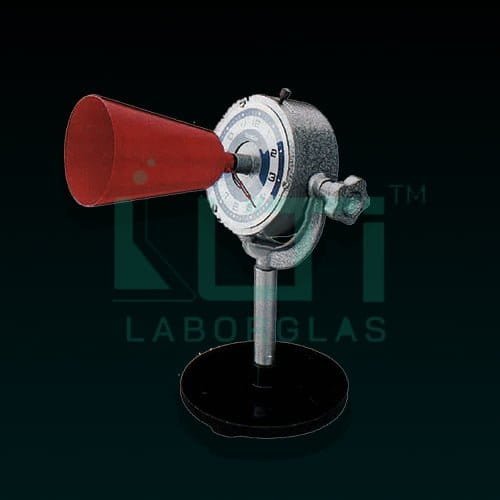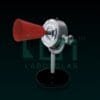- A clinostatis a device which is used to negate the effects of gravitational pull on plant growth.
- A single axis clinostat consists of a disc attached to a motor, originally clockwork but usually electric nowadays.
- The disc is held vertically and the motor rotates it slowly at rates in the order of one revolution per minute.
- A plant is attached to the disc so that it is held horizontally.
- The slow rotation means that the plant experiences a gravitational pull that is averaged over 360 degrees, thus approximating a weightless environment.
- Clinostats have also been used to cancel out effects of sunlight and other stimuli besides gravity.
- A single axis clinostat only produces the weighlessness effect along its axis of rotation.
- A 3D or two axis clinostat, can average gravitational pull over all directions.
A Klinostat is often abbreviated as “KS.” In a laboratory or research setting, it is used for:
- Studying plant growth and tropism (response to environmental stimuli)
- Investigating the effects of altered gravity or orientation on plant development
- Mimicking conditions in space research to understand plant responses
- Conducting experiments in plant physiology and biology







